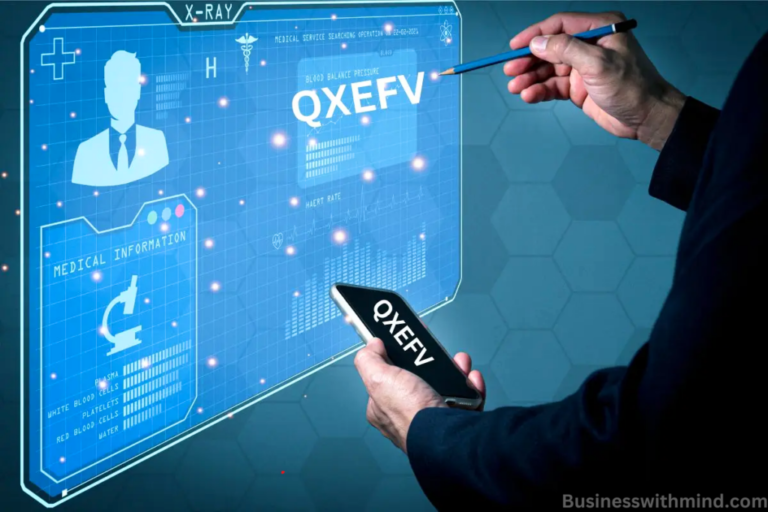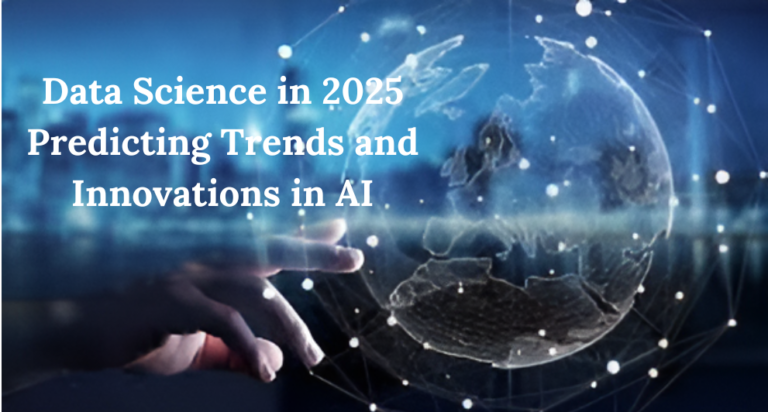
Data science and artificial intelligence (AI) are moving fast and changing the world around us. By 2025, these technologies will be a much bigger part of our daily lives, transforming how we work, learn, and interact. From healthcare to entertainment, AI and data science will keep driving innovation, opening up new possibilities, and bringing fresh challenges. In this article, we’ll dive into the trends and breakthroughs in AI and data science we can expect to see by 2025.
The Growing Role of AI in Data Science
By 2025, artificial intelligence will no longer simply be a tool used by data scientists to build models. Instead, AI will become a core component of data science workflows. Tools and platforms will leverage AI to automate much of the manual effort involved in data preparation, cleaning, and analysis. This shift will allow data scientists to focus more on extracting insights and generating value from data rather than spending time on tedious tasks like data wrangling.
In 2025, AI will take on a larger role in the following areas:
- Data Cleaning and Pre-processing: AI-powered tools will automatically detect outliers, handle missing values, and transform raw data into usable formats, saving significant time and effort.
- Feature Engineering: AI will assist in selecting the most relevant features, leading to more accurate and efficient models.
- Model Selection: AI will streamline the process of choosing the most appropriate algorithms for a given dataset, improving model performance while reducing human bias.
AutoML (automated machine learning) tools will become more advanced, allowing non-experts to create high-quality models with minimal programming knowledge. This democratization of AI tools will expand access to machine learning, empowering a wider audience to build and deploy models.
Predictive Analytics: Transforming Decision Making
By 2025, predictive analytics will take center stage in AI’s impact on various industries. The ability to analyze historical data and predict future trends will empower businesses to make more informed decisions. Machine learning algorithms will uncover patterns in vast datasets, enabling industries to anticipate customer behavior, optimize operations, and improve products and services.
For example:
- In healthcare, AI-driven predictive models could forecast disease progression, enabling early intervention and personalized treatment plans.
- In finance, predictive analytics will detect fraudulent activities by analyzing transaction patterns and identifying anomalies in real time.
- In retail, businesses will use predictive analytics to forecast demand, optimize inventory, and personalize marketing strategies. AI-powered recommendation systems will evolve to provide hyper-targeted product suggestions based on individual preferences and behavior.
The Rise of Explainable AI (XAI)
As AI becomes increasingly integrated into critical decision-making processes, transparency and accountability will become even more essential. By 2025, Explainable AI (XAI) will be a crucial innovation aimed at addressing the concerns related to the “black-box” nature of many AI models.
Traditional AI models, especially deep learning systems, are often seen as “black boxes” because their decision-making processes aren’t easily interpretable. This lack of transparency can create challenges in sectors where understanding AI decisions is critical, such as finance, healthcare, and legal systems.
XAI aims to make AI systems more transparent by providing understandable explanations for their decisions. By 2025, XAI techniques will be far more advanced, enabling data scientists, business leaders, and regulators to trust and interpret AI’s reasoning. This will lead to broader adoption of AI across industries, as businesses and consumers alike will feel more confident in AI-driven solutions.
The Growth of Autonomous Systems
AI-powered autonomous systems will become increasingly prevalent by 2025. These systems will be capable of performing tasks with minimal human intervention, improving efficiency, safety, and cost-effectiveness across industries. Some of the most prominent developments in autonomous systems include:
- Autonomous Vehicles: AI will enable self-driving cars to safely navigate complex environments. By 2025, these vehicles will become more reliable, and adoption rates will rise, transforming transportation and logistics.
- AI-Powered Drones: Drones will become more intelligent, able to perform tasks such as deliveries, infrastructure inspections, and environmental monitoring autonomously. AI-driven drones will be integrated into industries such as agriculture, supply chain management, and surveillance.
- Robotic Process Automation (RPA): AI will power more advanced robots capable of performing a broad range of tasks, from manufacturing to healthcare. Robots will assist with tasks like elderly care, surgical support, and warehouse operations.
These innovations will require sophisticated AI models that can handle real-time decision-making, sensor fusion, and complex problem-solving.
AI in Personalization and Consumer Experiences
In 2025, AI will significantly enhance personalized experiences for consumers. As vast amounts of data are generated through digital interactions, AI will help companies create customized experiences, content, and services. In fields such as marketing, entertainment, and shopping, AI will be used to tailor recommendations based on individual preferences and behaviors.
Some key innovations in personalized experiences will include:
- AI-Driven Content Creation: By 2025, AI will be capable of generating personalized content such as news articles, videos, and advertisements. This will allow businesses to engage more meaningfully with their customers.
- Augmented Reality (AR) and AI: AI will power personalized AR experiences, where virtual objects or information are superimposed on the real world. In retail, for example, customers may visualize products in their homes before making a purchase.
- Smart Assistants: AI-powered virtual assistants will become more intelligent, offering personalized advice and assistance across various contexts, from work productivity to healthcare management.
Delivering hyper-personalized experiences will become a key competitive advantage for businesses, driving increased customer loyalty and satisfaction.
AI and Data Ethics: Addressing Bias and Privacy Concerns
As AI continues to expand, ethical concerns regarding bias and privacy will remain a significant focus. Since AI algorithms are trained on vast amounts of data, they can inadvertently reinforce biases present in the data, leading to unfair or discriminatory outcomes. To mitigate these risks, the AI community will work to develop stronger ethical frameworks and tools for responsible AI development.
Key challenges and solutions include:
- Bias Detection and Mitigation: By 2025, more sophisticated techniques will be developed to identify and reduce bias in AI models. This includes methods for auditing models, evaluating fairness, and ensuring that AI systems don’t perpetuate harmful stereotypes.
- Data Privacy: With the growing volume of personal data processed by AI systems, data privacy will become a top priority. AI models will be designed to comply with privacy regulations, and techniques like differential privacy will be widely adopted to protect user data.
- AI Governance: Governments and organizations will establish stronger regulatory frameworks to ensure AI is used responsibly. These regulations will address issues such as accountability, transparency, and human oversight.
Read also: An In-Depth Exploration of Its Definition and Significance
Conclusion: A Bright Future for Data Science and AI
By 2025, AI and data science will have become integral parts of our daily lives. The innovations in AI will lead to smarter, more efficient systems that transform industries and improve the quality of life. Predictive analytics will revolutionize decision-making, and explainable AI will foster greater trust in machine learning models.
The growth of autonomous systems, personalized experiences, and ethical AI will ensure that AI benefits society while minimizing risks. As data science continues to evolve, its potential to solve complex problems and create value will be limitless.
To thrive in this data-driven future, businesses and individuals alike must embrace the opportunities presented by AI and stay informed about emerging trends. The next few years promise exciting developments in the field, and by 2025, we will see the widespread integration of AI and data science in ways that were once unimaginable.







